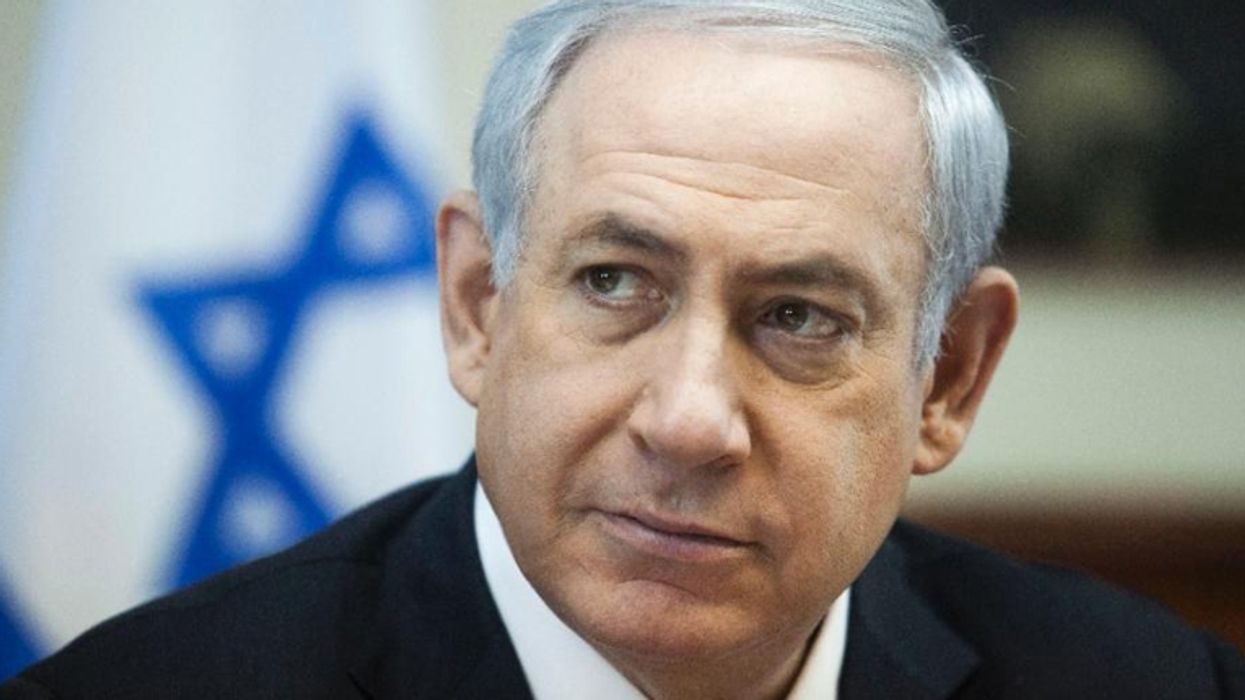ARTICLE AD BOX

Top officials in the Israel Defense Forces and Israeli government have reportedly been warned by a top legal expert that the International Court of Justice could issue an injunction requiring the country to halt its bombardment of Gaza, following a motion filed by South Africa last week.
Haaretz reported that the Israeli "security establishment and the state attorney's office are concerned" that the court could soon take action to force a cease-fire to protect civilian lives.
IDF Chief of Staff Herzl Halevi is among those who have been warned that South Africa's petition could be successful, the outlet reported, and a hearing on how the government should deal with the matter was held Monday at the Israeli Foreign Ministry.
As Common Dreamsreported last week, South Africa said in its complaint to the ICJ that it is "gravely concerned with the plight of civilians caught in the present Israeli attacks on the Gaza Strip due to the indiscriminate use of force and forcible removal of inhabitants," and called on the ICJ to take action to force Israel to "immediately cease" its attacks on Gaza's 2.3 million residents.
At least 21,978 Palestinians have been killed and 57,697 have been injured in Israeli air and ground attacks on Gaza since the IDF began its bombardment in retaliation for Hamas' assault on southern Israel on October 7, which killed 1,139 people.
Top officials in Israel have made numerous statements suggesting their overarching goal is to clear Gaza and the West Bank of all Palestinian residents, with National Security Minister Itamar Ben Gvir saying Monday that the fighting presents an "opportunity" for Gaza residents to leave and for Israel to expand its settlements in the occupied Palestinian territories.
Previously, Prime Minister Benjamin Netanyahu said the so-called "voluntary migration" of Palestinians is the goal, while President Isaac Herzog said all civilians in Gaza are "responsible" for Hamas' attack and Defense Minister Yoav Gallant said the military would collectively punish Palestinians in Gaza, whom he called "human animals," for the October 7 attack.
Professor Eliav Lieblich, an expert on international law at Tel Aviv University, told Haaretz that such statements could be viewed by the ICJ as evidence of intent to harm civilians in Gaza.
"Genocide is a violation, the proof of which in court requires two elements," Lieblich told the outlet. "First, you have to show intention of annihilation, and second—certain actions in the field that promote this intention. According to South Africa, the intention is proven by statements of senior Israeli figures and a public atmosphere of erasing or flattening Gaza, and the widespread harm to civilians and the hunger in Gaza show the factual element of the deed."
"In general, it's hard to prove an intention of genocide because no public statements to that effect are made during the fighting," Lieblich added. "But these irresponsible statements about erasing Gaza will require Israel to explain why they don't reflect such an intention."
Author and activist Naomi Klein pointed out that while Israel does not recognize the authority of the International Criminal Court (ICC), which investigates accusations of war crimes and prosecutes individuals, it is a party to the Genocide Convention, which allows the ICJ to deal with judicial disputes between countries, including when they are accused of genocide.
A determination by the ICJ that Israel has failed to stop a genocide by its military forces or has committed genocidal acts against Palestinian civilians wouldn't necessarily mean that an injunction "would be immediately enforced," Lieblich told Haaretz. "But if it determines in a ruling or even a temporary injunction that a suspicion exists that Israel is committing genocide, you have to think about what this would say for the historical narrative. For this reason, too, the proceeding must be taken seriously."
The ICJ is also considering a complaint made by Ukraine regarding Russia's invasion and a complaint against Myanmar about its persecution of the Rohingya minority group.
"South Africa's complaint is intended to add Israel to this very disreputable group, and thereby also embarrass the U.S. as its ally," Lieblich told Haaretz.
Despite the fact that a majority of Americans support the call for a cease-fire in Gaza, the U.S. government has continued providing Israel with military support and defending its actions.
Independent journalist Sam Husseini wrote Monday that a volunteer has compiled a list of international officials who cease-fire advocates can get in touch with directly to pressure other governments to back South Africa's petition.
World Beyond War and RootsAction have also launched actions to pressure other countries to support South Africa at the ICJ.
"If a majority of the world's nations call for a cease-fire, yet fail to press for prosecution of Israel—what is to stop Israel from ethnically cleansing all Palestinians?" reads World Beyond War's letter, which it urged supporters to send to governments that have been critical of Israel. "For that matter, what is to stop other nations from repeating a horror of this magnitude?"
.png)
 1 year ago
35
1 year ago
35








 English (US)
English (US)